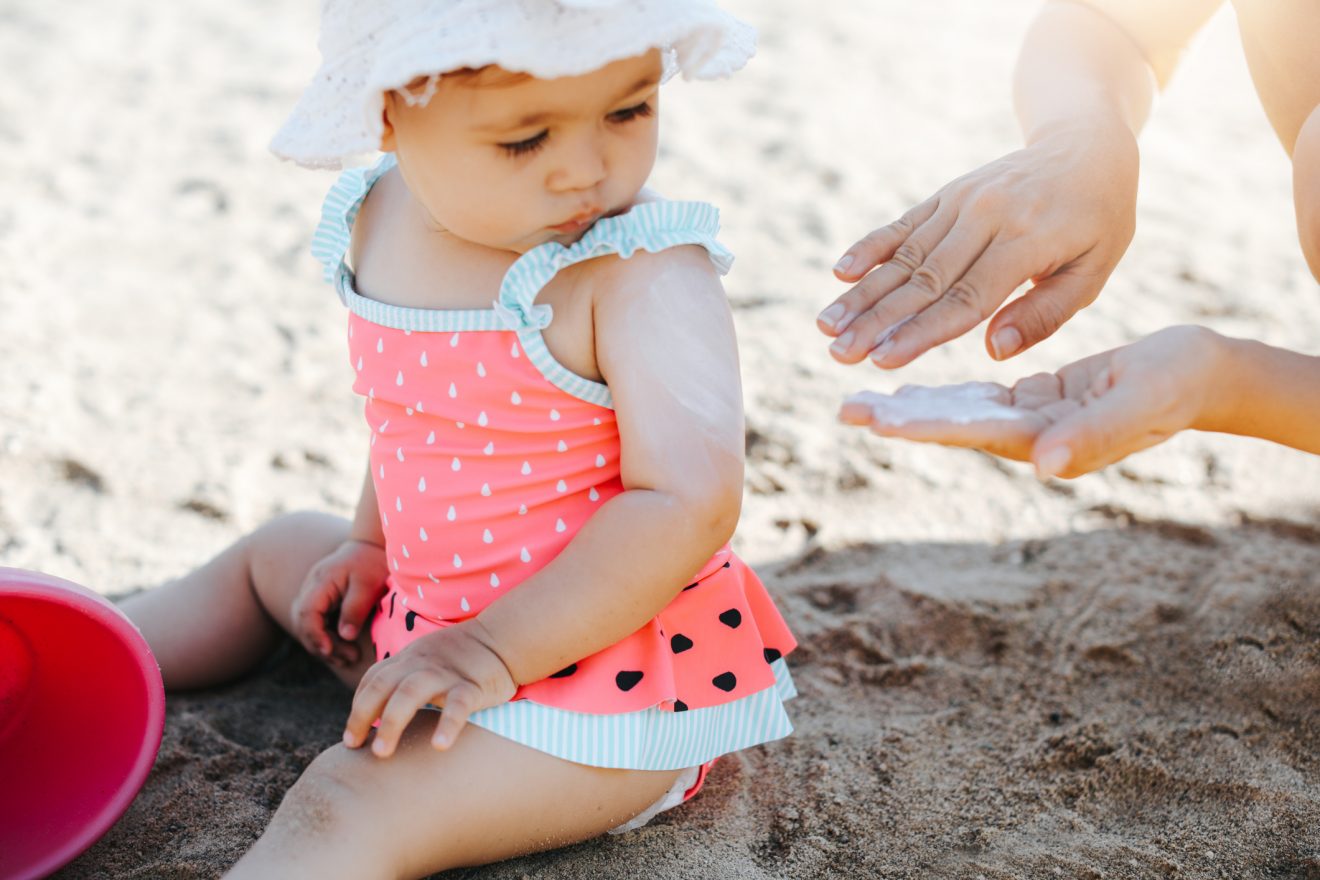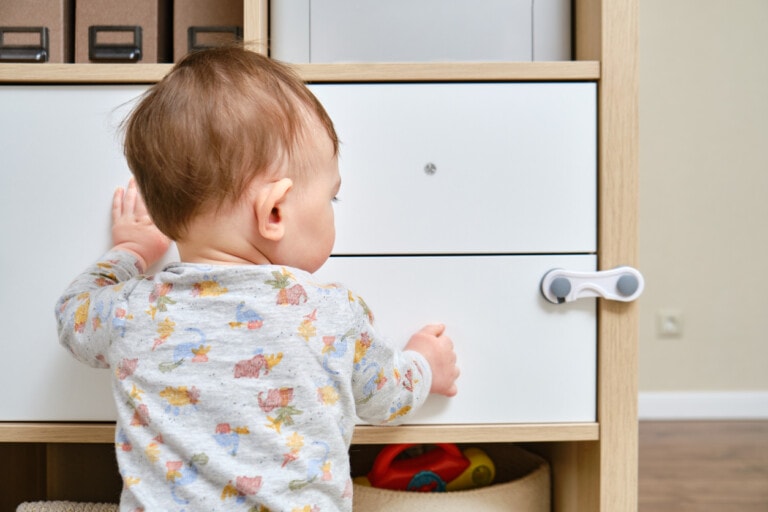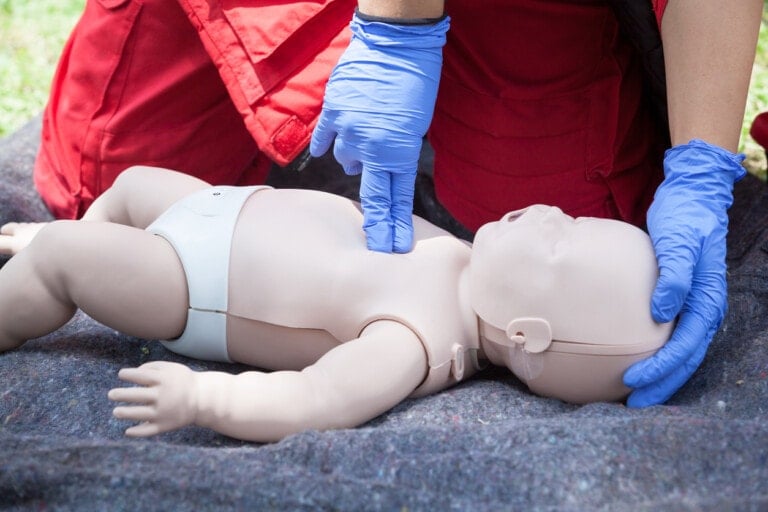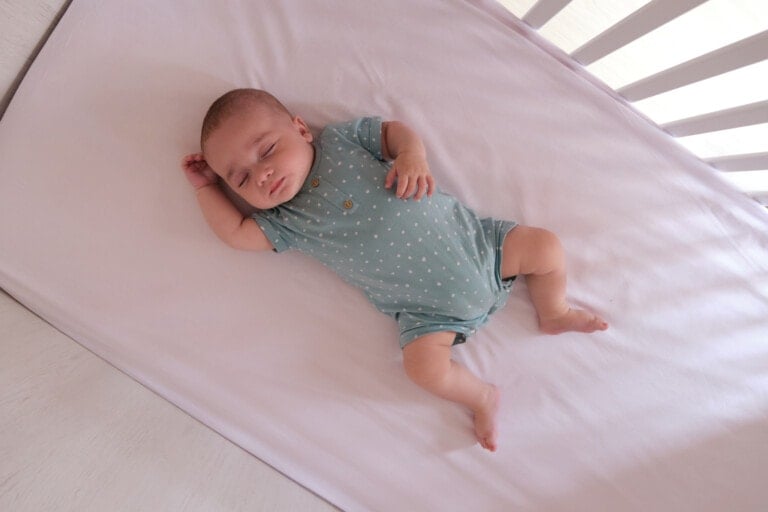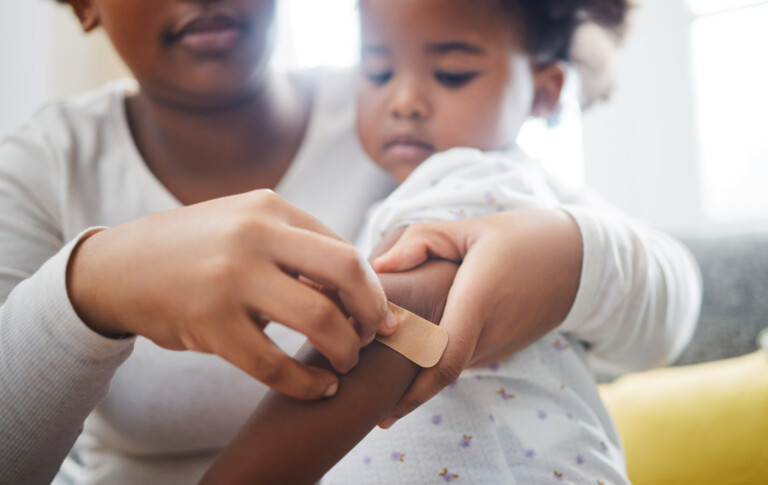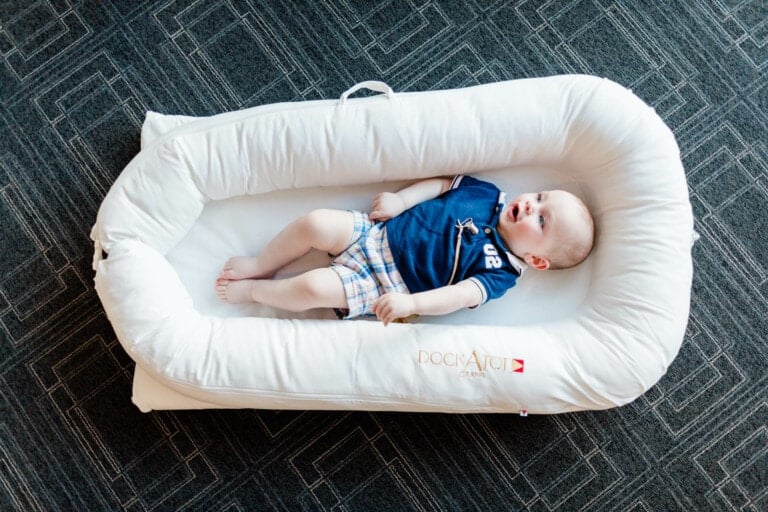It was a beautiful, hot, sunny day at the Jersey shore. Our family was vacationing with my parents at their beach house. We had our brightly colored towels spread out on the beach, and the blue water was sparkling. I got the sunscreen spray can out and began spraying myself and my family with aerosol sunscreen, and I started coughing. We all did. My nose got irritated, and my eyes watered. I felt physically uncomfortable as I tried to get everyone protected from the sunshine. It wasn’t until I did the research that I decided to stop using aerosol sunscreen altogether.
Aerosol sunscreens seem like an easy, more convenient alternative to lotion sunblock. You spray and go. There’s no mess, no fuss. Except that’s not even true! I noticed I was still using my hands to spread some here and there where the spray missed on my body or my family’s. And if it was a windy day, the spray wasn’t reaching the skin. I instinctually refused to put it on my children when they were babies. It just didn’t feel right.
Aerosol Sunscreens Are Not Worth the Risk
Not surprisingly, the health research I did on aerosol sunscreens backed up my mama-bear instinct. It confirmed that it isn’t worth the health risk to use aerosol sunscreen on my babies or my family. Here’s why.
Sunscreen is Not Safe for Children Under 6 Months Old
The FDA states that “sunscreens are not recommended for infants.” 1 They acknowledge that infants are at a greater risk than adults of sunscreen side effects. Instead, the FDA recommends that infants be kept out of the sun between 10 a.m. and 2 p.m.1 They also encourage the use of protective clothing if children have to be in the sun.1 When we brought our babies to the beach, we also used umbrellas and tents to protect them from the sun’s UV rays.
Aerosol Sprays Contain Harmful Chemicals
Spray sunscreens (as well as many conventional sunblock lotions) contain hormone disruptors and free radicals, all of which can be harmful to a person’s body. Recent studies show how these chemicals are being absorbed into the bloodstream at alarming rates.2 A study published in 2019 by The Journal of the American Medical Association confirmed that six active ingredients in sunscreen were absorbed into the body.3 Several of those chemicals stayed elevated beyond the FDA’s threshold of concern for 3 weeks after the people in the study stopped putting them on their skin.
For example, people’s blood concentrations of the chemical oxybenzone were more than 80 times the FDA’s level of concern after a single application of sunscreen.3 And they soared to more than 500 times the FDA’s level of concern after 4 days of regular use.3 Oxybenzone may affect breast development, infant birth weight, and sperm function.4
Remember, the skin is an organ of the body and acts like a sponge. For babies, their skin (and organs like the liver, which help filter out damaging toxins) are not yet fully developed.9,10 The way babies process chemicals are not as efficient as an adult. Luckily, mineral-based sunscreen lotions are safe and effective for protecting your baby and your family’s skin. (See bottom of the article for some natural and safe sunscreen options.)
Aerosol Sprays are Highly Flammable
Several cases of people catching on fire from wearing aerosol sunscreen have been reported to the FDA in recent years.5 As a result, the FDA recommends that you avoid being near an open flame, sparks, or an ignition source after applying sunscreen sprays labeled as flammable.5 That alone is enough reason not to put an aerosol spray on my child or me. I don’t want to wear a flammable product all over my body! Most aerosol sunscreens have alcohol in them and other flammable chemicals that are used to make aerosols: things like volatile hydrocarbons, propane, and dimethyl ether.
Inhaling the Spray Can Be Dangerous
Aerosol sunscreen also poses a danger for inhalation.6 It can be especially dangerous for babies and people with asthma. Breathing in the aerosol spray takes the chemicals in the sunscreen directly into your baby’s lungs. As discussed above, aerosol sunscreen has various chemicals known to cause endocrine disruption and other health problems.
Bad for Skin and the Environment
If those above reasons aren’t reason enough to stop using spray sunscreen, consumers have also reported their baby or their own adult skin being “burned” from the spray can solution itself, resulting in swelling, bad rashes, and worse. Finally, the chemicals in traditional sprays and lotions are also now known to damage coral reefs.7
What Should You Use Instead?
Alternative products to aerosol spray sunscreen and conventional sunblock lotion are mineral-based sunscreens, preferably containing zinc oxide and titanium dioxide. The FDA says both ingredients are safe, and combining these two ingredients provides broad-spectrum protection.8
Remember to avoid products with oxybenzone and octinoxate (harmful chemicals). Instead, choose sunscreens with only zinc oxide and titanium dioxide (natural minerals). Here is a list of some great alternative sunscreens that are safer for your kids:
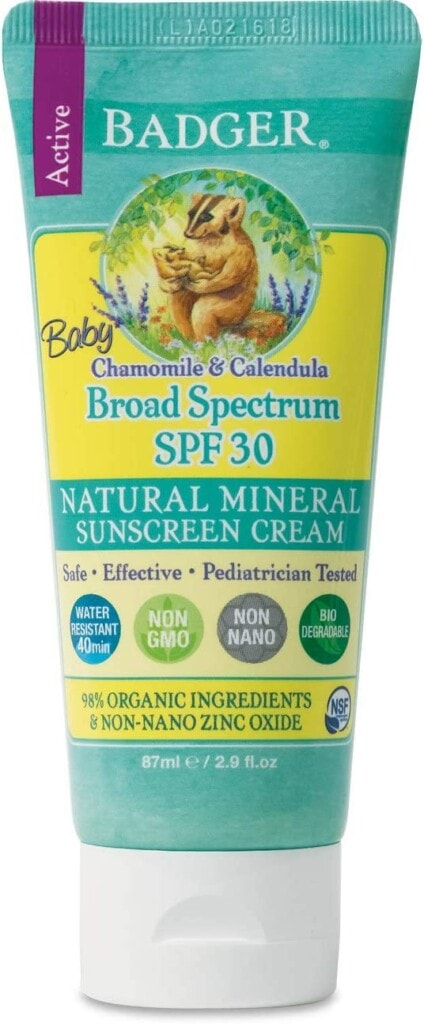
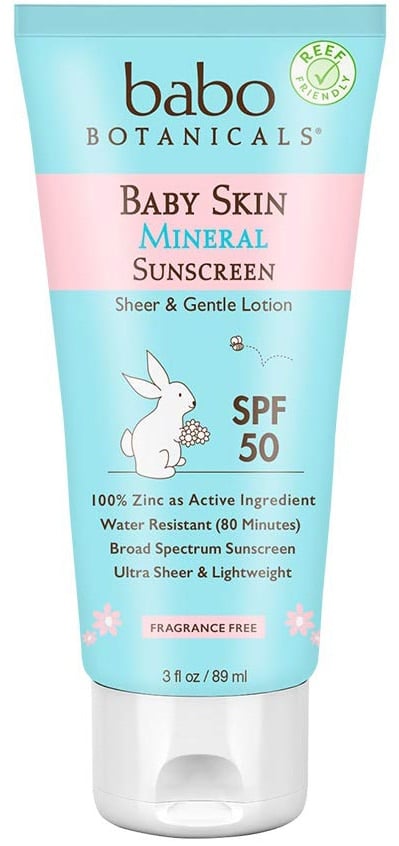
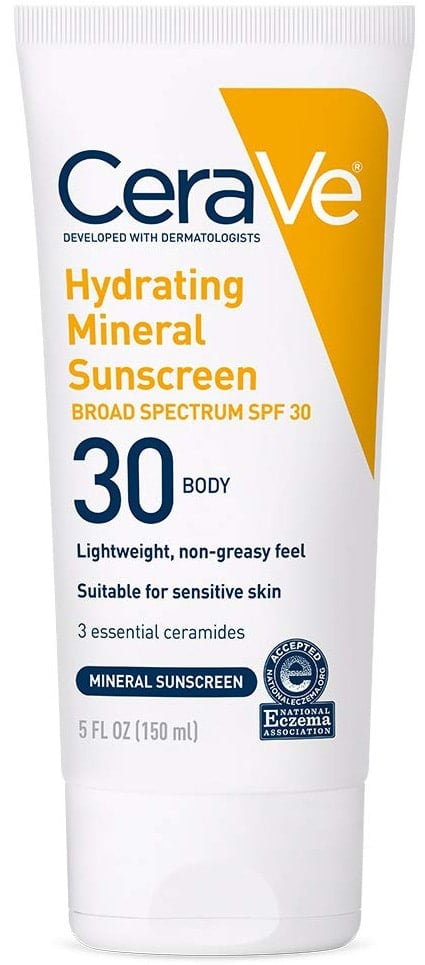
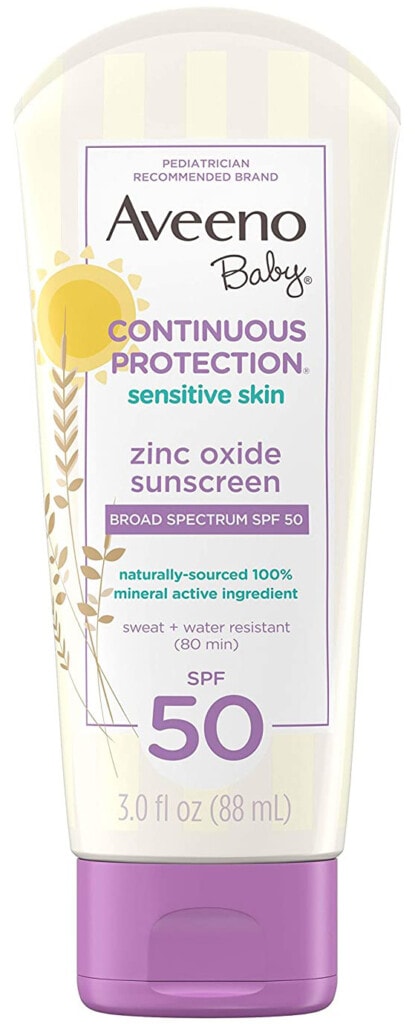
Have a great summer!













